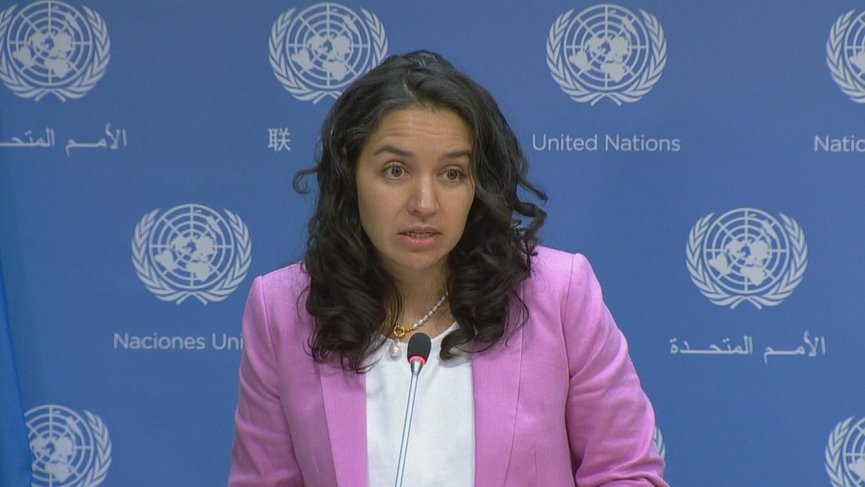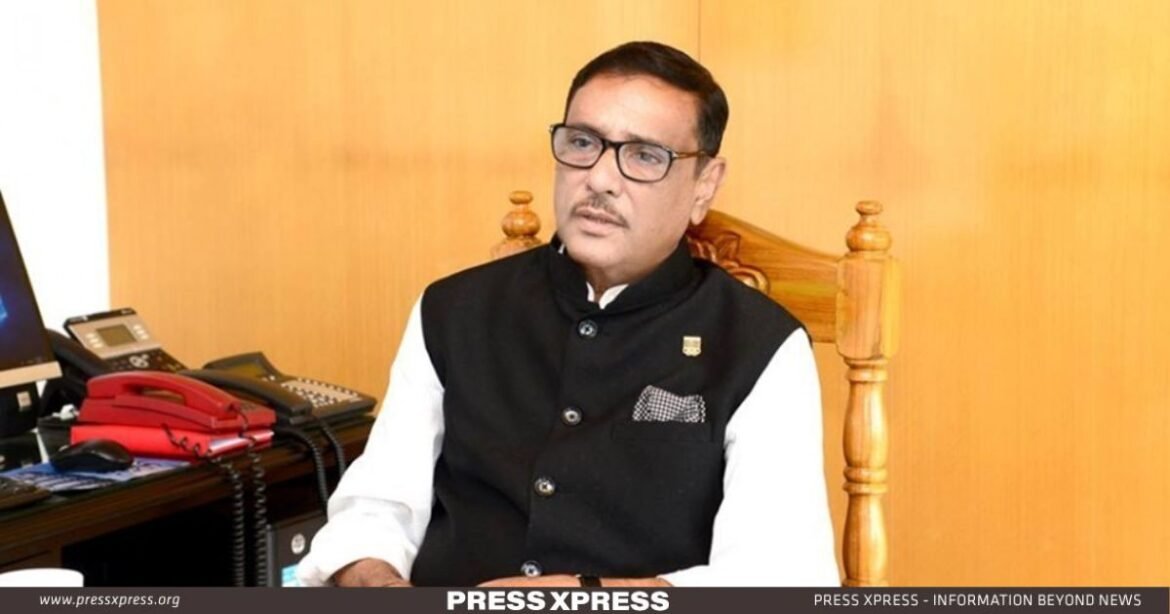On Thursday, Awami League General Secretary Obaidul Quader asserted that their party chief, Prime Minister Sheikh Hasina, remains indifferent to visa policies and foreign sanctions.
“Sheikh Hasina doesn’t heed threats or warnings from foreign entities. Her only fear is of God, and her dedication is to the people of Bangladesh,” Quader emphasized during his speech commemorating the 76th founding anniversary of Bangladesh Chhatra League at Dhaka University.
He emphasized that effective governance relies on the election of competent individuals, warning of inevitable misrule if this standard isn’t met.
You can also read: Campaign Closes, Nation Awaits Vote
Quader didn’t mince words when criticizing the Bangladesh Nationalist Party (BNP), accusing them of vacating the political arena after being metaphorically shown the “red card.” He pointed out the irony in their current strategy, emphasizing that waiting for sanctions was their chosen recourse.
In the lead-up to the general election, Bangladesh faces heightened tension as the BNP-Jamaat-led hardline factions persist in disruptive protests and road blockades. Their insistence on a caretaker government, an unconstitutional provision in Bangladesh’s democratic process, fuels unrest despite its lack of international adherence.
However, amidst concocted claims, BNP leaders provoke the US and Western partners to pressure the Awami League government, attempting to sway results through unethical means. Such calls for foreign interference sow seeds of a treacherous conspiracy against Bangladesh’s sovereignty, inviting foreign intervention to undermine the democratically elected government.

UN’s Recent Statement
Bangladesh’s political landscape has recently been marked by the main opposition party, the BNP, declaring a boycott of the upcoming national parliamentary election. Citing concerns over the electoral environment, the BNP has urged its supporters to abstain from voting, raising questions about the fairness of the impending polls.
Addressing the issue of the BNP’s election boycott, a journalist queried UN Secretary-General Antonio Guterres’ spokesperson, Florencia Soto Niño, regarding the UN’s stance on this matter. Responding to the query, spokesperson Florencia refrained from making any explicit comments, stating that the UN currently has no official statement regarding the BNP’s decision. However, she reiterated the UN’s overarching objective, emphasizing their desire for an uninterrupted and equitable election process in Bangladesh. The organization remains vigilant in closely monitoring developments surrounding the elections.
During another interaction with a Bangladeshi journalist, the UN spokesperson was asked about the participation of 1, 970 candidates from 28 political parties in the parliamentary election, alongside the presence of 400 international observers. Expressing concerns over the BNP’s boycott amidst such an inclusive electoral process, the journalist sought the UN’s observations on this matter.
In response, the UN spokesperson reiterated their neutral stance, stating that the organization refrains from making specific comments on the BNP’s decision. The UN’s primary focus remains on observing and monitoring the ongoing electoral process, with a firm hope for a fair and participatory election in Bangladesh.
As the nation prepares for its upcoming parliamentary election, the United Nations continues its vigilant watch, prioritizing a fair and inclusive electoral process for the benefit of the Bangladeshi people.
Global Powers’ Interventions Heighten Bangladesh’s Political Landscape
It’s not uncommon for influential global powers to intervene in Bangladesh’s national elections and political landscape. While some aim to uphold the nation’s sovereignty, others seek to exert influence within its internal affairs.
Last year (2023), members of the United States Congress penned a letter to President Joe Biden, urging swift action to address human rights violations, ensure fair elections, and address the deteriorating situation in Bangladesh. Similarly, six members of the European Parliament, including Ivan Štefanec, urged Josep Borrell to prioritize free, fair, and unbiased elections in Bangladesh.
In a significant move in December 2021, the United States imposed sanctions on RAB and seven current and former officials due to severe human rights abuses.
Furthermore, Vice-President of the European Commission, Josep Borrell, corresponded with Ivan Štefanec, underscoring concern over the political crisis and human rights violations in Bangladesh, emphasizing the need for dialogue just last month.
Foreign involvement in Bangladesh’s political landscape has sparked a diplomatic standoff, highlighting the conflict between the United States and China.
In a recent development, the Russian Foreign Ministry spokesperson also addressed Bangladesh’s political situation, emphasizing the positions of the US and EU against meddling in other countries’ internal affairs. Russia pledged full support to nations like Bangladesh that base their foreign and domestic policies on national interests rather than succumbing to the influence of foreign powers, particularly developed countries.
Awami League’s Viewpoint
The Awami League, known for advocating free and fair elections in Bangladesh, appears unfazed by the commencement of the U.S. visa ban process targeting individuals who hinder democracy in the country. Rather than showing excessive concern, the party aims to approach this visa ban cautiously, seeking to understand the motives and messages behind the U.S. action.
Bangladesh is currently in a complex geopolitical position, balancing between the United States’ advocacy for democratic values in the Indo-Pacific, China’s Belt and Road Initiative, and its quest for stability. The U.S. visa ban and associated sanctions, often influenced by strategic motives, highlight the multifaceted challenges facing Bangladesh. Prime Minister Sheikh Hasina’s pragmatic approach and the Awami League’s commitment to ensuring fair elections will guide Bangladesh’s response.
As the elections draw closer, Bangladesh’s ability to navigate this intricate geopolitical landscape while upholding democratic principles and protecting its interests becomes paramount.


